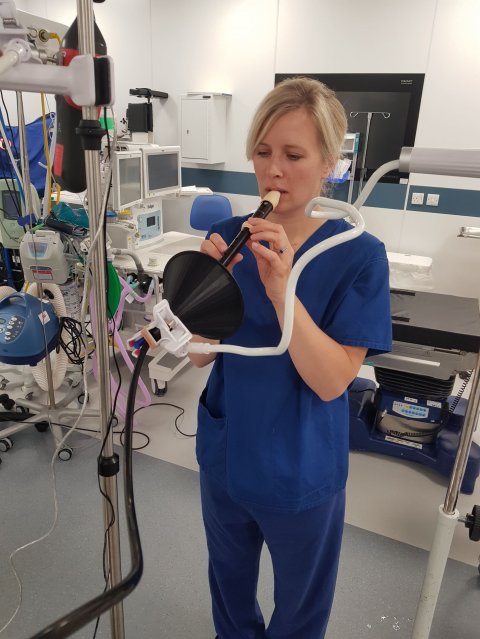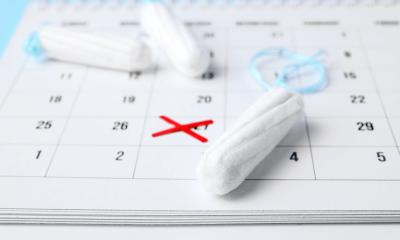News • Aerosol propagation study
Covid-19: is it safe to play the trumpet and other wind instruments?
Aerosol generated by playing woodwind and brass instruments is less than that produced when vocalising (speaking and singing) and is no different than a person breathing, new research has found.

Image credit: University of Bristol
The findings, published online in the journal Aerosol Science and Technology, could be crucial to developing a roadmap for lifting Covid-19 restrictions in the performing arts, which have been significantly restricted since the start of the pandemic.
The research project, known as PERFORM (ParticulatE Respiratory Matter to InForm Guidance for the Safe Distancing of PerfOrmeRs in a Covid-19 PandeMic), was supported by Public Health England, the Department for Digital, Culture, Media and Sport (DCMS), and UKRI and was carried out by a collaborative team from Imperial College London, University of Bristol, Wexham Park Hospital, Lewisham and Greenwich NHS Trust and Royal Brompton Hospital. The study looked at the amount of aerosols and droplets generated when playing woodwind and brass instruments compared with breathing and vocalisation (speaking and singing). The work was carried out in an environment with no background aerosol particles to complicate measurement interpretation, with nine musicians playing 13 woodwind and brass instruments.
Recommended article

News • Aerosol study
Singing in times of COVID-19: more space to the front than to the side
How high is the risk that aerosol transmission during choral singing could cause infection with the coronavirus? After occurrences of infection among choirs in the USA and Germany, Bavarian Broadcasting carried out a complex series of experiments for its musical ensembles in conjunction with the LMU University Hospital Munich and the Universitätsklinikum Erlangen (FAU).
The research team found aerosol (<20 μm diameter) generated while playing woodwind and brass instruments is similar to that produced by breathing, based on measurements of several musicians playing the flute and piccolo as well measurements across a range of instruments including clarinet, trumpet, trombone, and tuba. Aerosol concentrations generated while instrument playing were lower than those associated with vocalising at high volume. Large droplets (>20 μm diameter) were not observed during instrument playing but were observed during singing and coughing. Together the findings indicate that playing woodwind and brass instruments generates less aerosol than vocalising at high volume levels.
Our study [...] could have important policy implications in a roadmap to lifting Covid-19 restrictions, as many performing arts activities have been, and continue to be, severely restricted
Bryan Bzdek
Concentrations of aerosol emissions from the musicians during breathing and vocalising were consistent with results from a study carried out last year of a large group of professional singers. No difference was found between the aerosol concentrations generated by professional and amateur performers while breathing or vocalising, suggesting aerosol generation is consistent across amateur and professional singers regardless of vocal training.
Dr Bryan Bzdek, Lecturer in the School of Chemistry at the University of Bristol and corresponding author on the paper, said: “Our study found playing woodwind and brass instruments generates less aerosol than vocalisation, which could have important policy implications in a roadmap to lifting Covid-19 restrictions, as many performing arts activities have been, and continue to be, severely restricted.”
Jonathan Reid, Director of Bristol Aerosol Research Centre and Professor of Physical Chemistry in the School of Chemistry at the University of Bristol, added: “This study confirms that the risks of transmission of SARS-CoV-2 are likely elevated during vocalisation at loud volume in poorly ventilated spaces. By comparison, playing wind instruments, like breathing, generates less particles that could carry the virus than speaking or singing.”
Source: University of Bristol
30.06.2021











